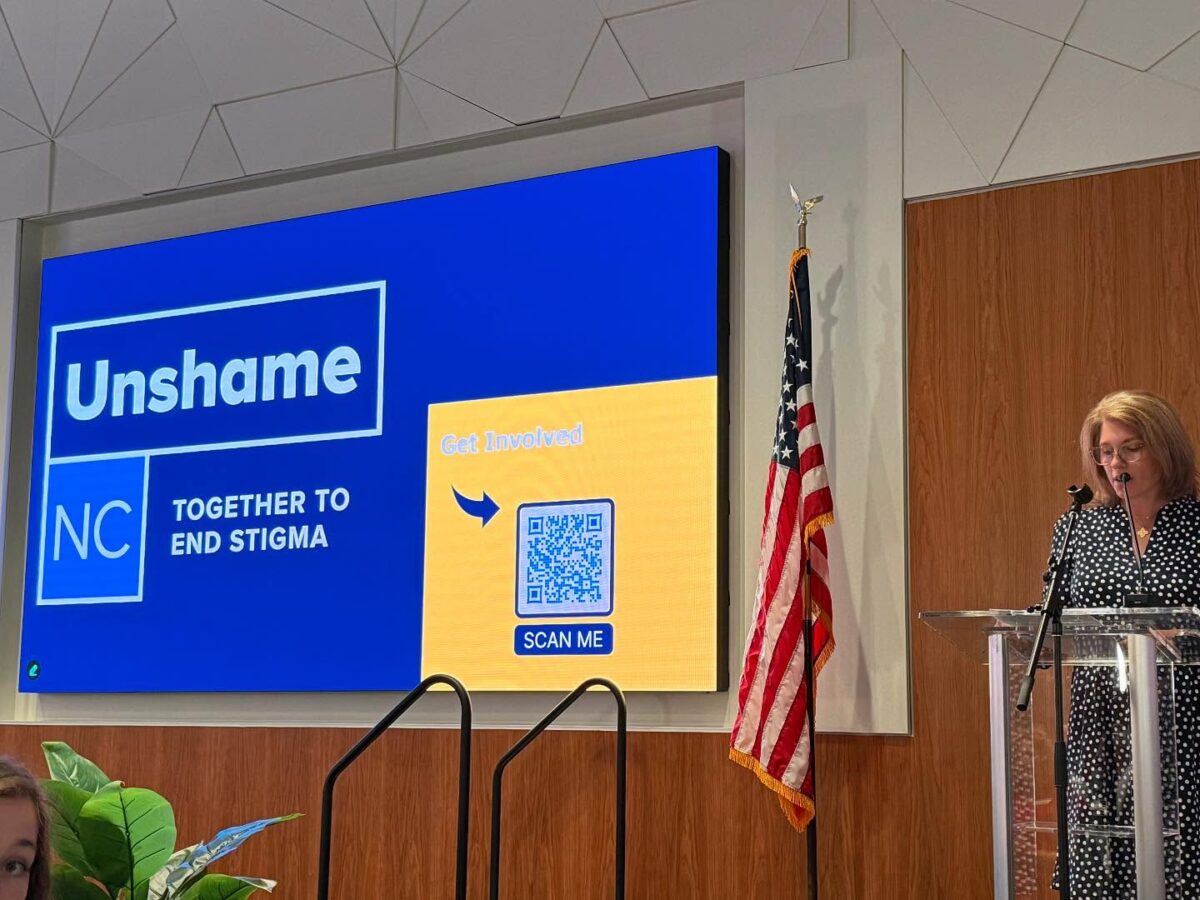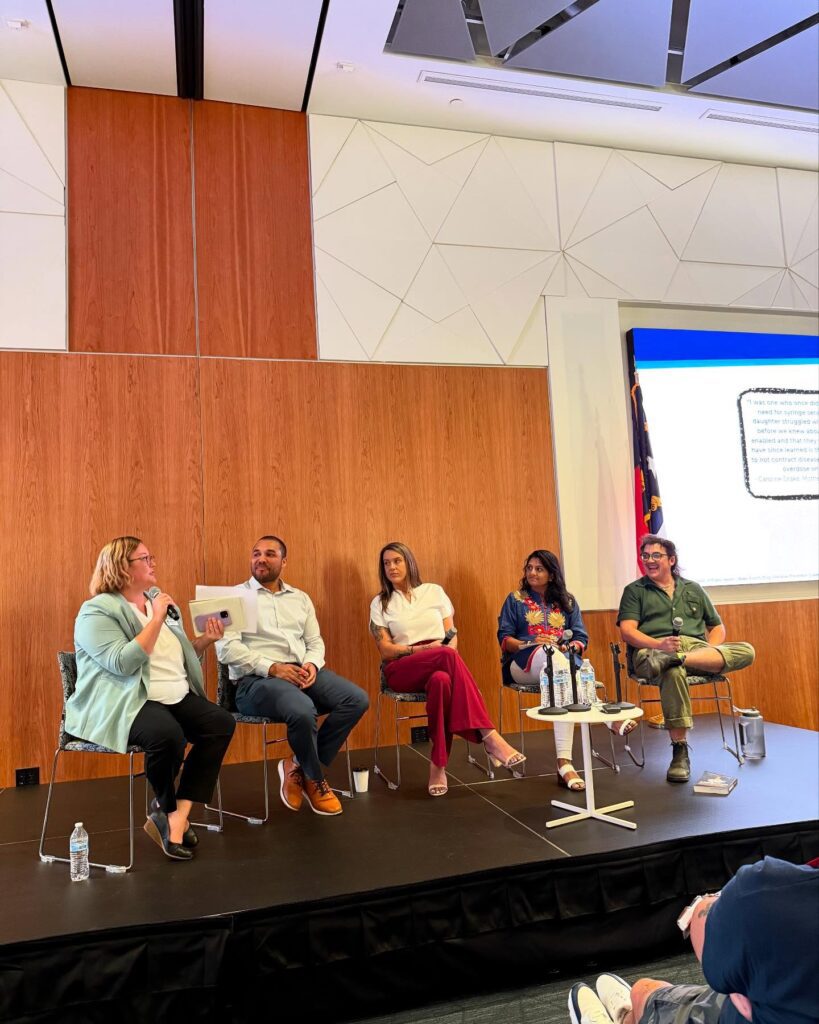
The North Carolina Department of Health and Human Services (NCDHHS) and First Lady Anna Stein have teamed up with national nonprofit Shatterproof to launch Unshame North Carolina (Unshame NC), a campaign to end the stigma associated with substance use disorder, according to a press release.
The campaign, launched July 21, aims to increase public awareness of substance use disorder and medical treatments for opioid use disorder.
“Many people struggling with substance use don’t seek help because of stigma,” Stein said during the campaign launch at the Wake County Drug Overdose Prevention Coalition meeting. “This campaign will highlight the stories of people who have experience with substance use disorder and recovery and bring greater awareness to effective methods of treatment for opioid use disorder.”
![]() Sign up for the EdDaily to start each weekday with the top education news.
Sign up for the EdDaily to start each weekday with the top education news.
More than half of North Carolinians know someone with opioid use disorder — yet only a third report knowing how to access the right treatment for themselves or a loved one, according to a statewide survey described in the press release. Additionally, the survey found that one in five adults described opioid use disorder as a medical condition.
The campaign comes after an increase in overdose deaths during the COVID-19 pandemic. According to state DHHS data, an estimated 4,442 North Carolinians died of an overdose in 2023, compared to 2,352 deaths in 2019. Data from the Kaiser Family Foundation shows that drug overdose death rates in North Carolina tripled from 2011 to 2021.
“Stigma is deeply rooted and causes real harm to people and communities across North Carolina,” said NC Health and Human Services Secretary Dev Sangvai. “Unshame NC is part of a collaborative effort from all of us to end stigma, build acceptance and increase support for treatment for people on their path to recovery.”

The campaign’s website includes North Carolinians’ personal stories on substance abuse and recovery, as well as links to resources for those seeking treatment or guidance.
“It’s not just about overdoses. It’s not just about lives that were lost or lives that were saved,” said Michael, one of the campaign’s testimonials. “It’s also about how we treat the people who went through it and how we bring them out of the shadows. How do we welcome them back into society? How do we get them back to where we need to be? And that requires a lot of folks like me to speak out and help break the stigma.”
The state developed the campaign with Shatterproof, a national nonprofit working to reverse the nation’s addiction crisis. The nonprofit produces the Shatterproof Addiction Stigma Index (SASI), a measurement of substance use stigma. According to the campaign website, Unshame NC will use the index to determine its strategy and impact.
“While most North Carolinians believe that people with SUD can recover with treatment, stigma and misinformation can create barriers to care,” said Courtney McKeon, senior vice president for Shatterproof’s National Stigma Initiative. “We see this often regarding medications for opioid use disorder (MOUD), a gold standard of care. Through the stories of North Carolinians, we have the opportunity to increase understanding of all treatment options and support individuals on their path to improved health and wellness.”
The Unshame NC website features a Story Sharer Interest Form for North Carolinians interested in sharing their experience with substance use disorder.
If you or someone you know is in crisis, NCDHHS provides somewhere to go, someone to talk to and someone to respond. You can find the help that is right for you 24/7 on the NCDHHS Crisis Services website.
Recommended reading



